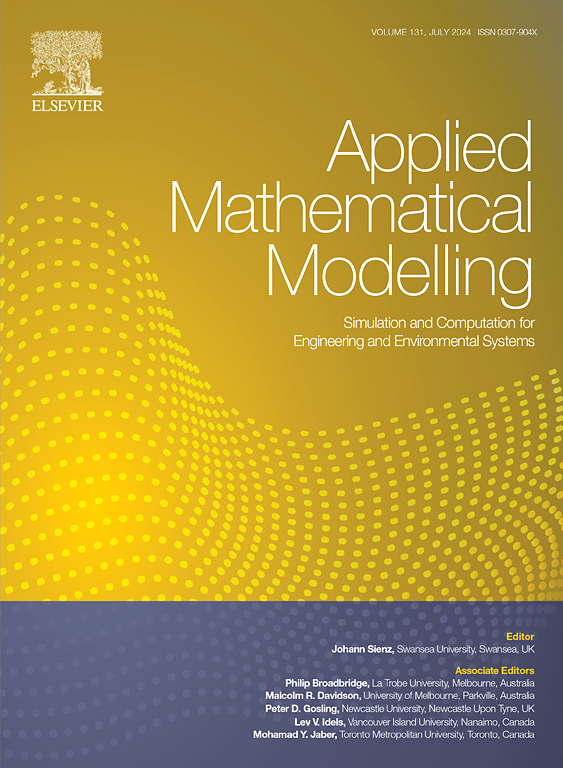不等式限制了面板计数数据的最小密度功率散度估计
IF 4.4
2区 工程技术
Q1 ENGINEERING, MULTIDISCIPLINARY
引用次数: 0
摘要
面板计数数据的分析在文献中获得了相当多的关注,导致了多种统计技术的发展。在推理分析中,大多数工作集中在利用基于估计方程的技术或传统的最大似然估计。然而,这些方法的稳健性很大程度上是值得怀疑的。在本文中,我们提出了由非齐次泊松过程产生的面板计数数据的鲁棒密度功率散度估计,这些数据通过潜在脆弱变量相关。为了应对现实事件,通常需要对参数空间施加一定的不等式约束,从而产生受限的最小密度功率散度估计量。由于结合了不等式约束,再加上目标函数固有的复杂性,标准计算算法对于估计目的是不够的。为了克服这个问题,我们采用序列凸规划,它通过一系列子问题逼近原问题。进一步,我们研究了所得估计量的渐近性质,对这项工作作出了重大贡献。该方法既保证了模型估计的高效率,又能在数据污染的情况下提供可靠的推理。此外,密度功率散度度量由调节参数γ控制,该参数控制鲁棒性和效率之间的权衡。为了有效地确定γ的最优值,本研究采用了广义分数匹配技术,这标志着数据分析取得了相当大的进展。仿真研究和实际数据示例说明了估计器的性能,并证实了所开发的理论。本文章由计算机程序翻译,如有差异,请以英文原文为准。
Inequality restricted minimum density power divergence estimation in panel count data
Analysis of panel count data has garnered a considerable amount of attention in the literature, leading to the development of multiple statistical techniques. In inferential analysis, most of the works focus on leveraging estimating equations-based techniques or conventional maximum likelihood estimation. However, the robustness of these methods is largely questionable. In this paper, we present the robust density power divergence estimation for panel count data arising from nonhomogeneous Poisson processes correlated through a latent frailty variable. In order to cope with real-world incidents, it is often desired to impose certain inequality constraints on the parameter space, giving rise to the restricted minimum density power divergence estimator. Being incorporated with inequality constraints, coupled with the inherent complexity of our objective function, standard computational algorithms are inadequate for estimation purposes. To overcome this, we adopt sequential convex programming, which approximates the original problem through a series of subproblems. Further, we study the asymptotic properties of the resultant estimator, making a significant contribution to this work. The proposed method ensures high efficiency in the model estimation while providing reliable inference despite data contamination. Moreover, the density power divergence measure is governed by a tuning parameter γ, which controls the trade-off between robustness and efficiency. To effectively determine the optimal value of γ, this study employs a generalized score-matching technique, marking considerable progress in the data analysis. Simulation studies and real data examples are provided to illustrate the performance of the estimator and to substantiate the theory developed.
求助全文
通过发布文献求助,成功后即可免费获取论文全文。
去求助
来源期刊

Applied Mathematical Modelling
数学-工程:综合
CiteScore
9.80
自引率
8.00%
发文量
508
审稿时长
43 days
期刊介绍:
Applied Mathematical Modelling focuses on research related to the mathematical modelling of engineering and environmental processes, manufacturing, and industrial systems. A significant emerging area of research activity involves multiphysics processes, and contributions in this area are particularly encouraged.
This influential publication covers a wide spectrum of subjects including heat transfer, fluid mechanics, CFD, and transport phenomena; solid mechanics and mechanics of metals; electromagnets and MHD; reliability modelling and system optimization; finite volume, finite element, and boundary element procedures; modelling of inventory, industrial, manufacturing and logistics systems for viable decision making; civil engineering systems and structures; mineral and energy resources; relevant software engineering issues associated with CAD and CAE; and materials and metallurgical engineering.
Applied Mathematical Modelling is primarily interested in papers developing increased insights into real-world problems through novel mathematical modelling, novel applications or a combination of these. Papers employing existing numerical techniques must demonstrate sufficient novelty in the solution of practical problems. Papers on fuzzy logic in decision-making or purely financial mathematics are normally not considered. Research on fractional differential equations, bifurcation, and numerical methods needs to include practical examples. Population dynamics must solve realistic scenarios. Papers in the area of logistics and business modelling should demonstrate meaningful managerial insight. Submissions with no real-world application will not be considered.
 求助内容:
求助内容: 应助结果提醒方式:
应助结果提醒方式:


